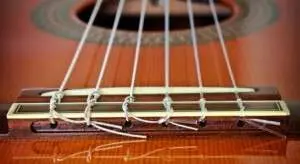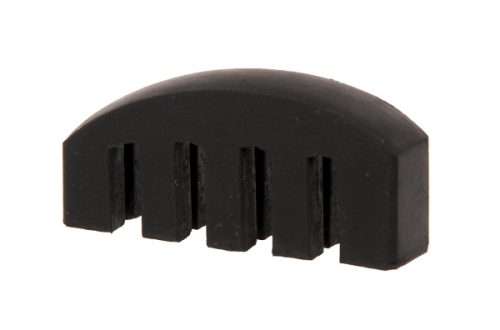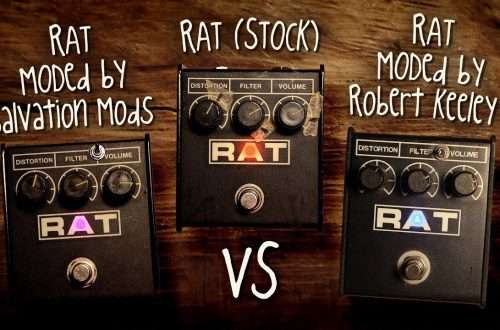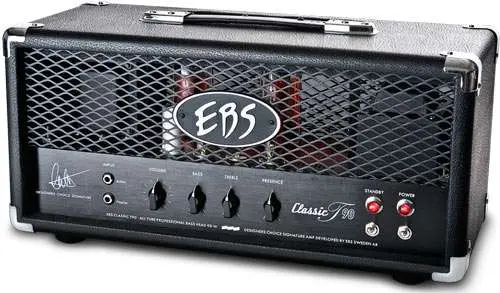
How to choose amplifiers and speakers for bass guitars?
Is the bass guitar more important than the amplifier to which we connect it? This question is out of place, because low-quality bass will sound bad on a good amplifier, but a great instrument combined with a poor amp won’t sound good either. In this guide, we will deal with amplifiers and loudspeakers.
Lamp or transistor?
“Lamp” – a tradition for decades, classic, rounder sound. Unfortunately, the use of tube amplifiers involves the need to replace the tubes from time to time, which significantly increases the operating costs of tube “furnaces”, which are still more expensive than their competitors. This competition consists of transistor amplifiers. The sound does not match tube amplifiers, although today the technology is moving so fast that engineers are getting closer and closer to reaching the sonic characteristics of tubes through transistors. In the “transistors” you do not need to replace the tubes, and besides, the transistor “furnaces” are cheaper than the tube ones. An interesting solution are hybrid amplifiers, combining a tube preamplifier with a transistor power amplifier. They are cheaper than tube amplifiers, but still capture some of the “tube” sound.

“Musical” neighbors
You have to reckon with the fact that each tube amplifier needs to be turned up to a certain level to sound good. Transistor amplifiers do not have any problems with that, they sound good even at lower volume levels. If we do not have neighbors playing, for example, the trumpet or the saxophone, disassembling the “lamp” can be a big problem. In addition, it is aggravated by the fact that low frequencies are better spread over longer distances. Living in the city, you can make half of the block stop liking us. We can play quietly at home on a larger solid-state amplifier and rock out at concerts. You can always choose a small tube amplifier with a small speaker, but unfortunately there is one “but”. On bass guitars, small speakers sound worse than large ones because they aren’t that good enough to deliver low frequencies, but more on that later.
Head + column or combo?
Combo is an amplifier with a loudspeaker in one housing. The head is the unit that amplifies the signal from the instrument, the task of which is to bring the already amplified signal to the loudspeaker. Head and column together are a stack. The advantages of the comba are definitely better mobility. Unfortunately, they make it difficult to replace the loudspeaker, and besides, transistors or tubes are directly exposed to high sound pressure. This has a negative effect on their work to some extent. In many combos it is true that a separate speaker can be connected, but even if we turn off the built-in one, we are still forced to transport the entire combo structure when moving the amplifier from place to place, but this time with a separate speaker. In the case of stacks, we have quite a mobile head and less mobile columns, which in combination is a difficult problem for transport. However, we can choose the head loudspeaker according to our preferences. In addition, the transistors or tubes in the “head” are not exposed to sound pressure, because they are in a different housing than the loudspeakers.
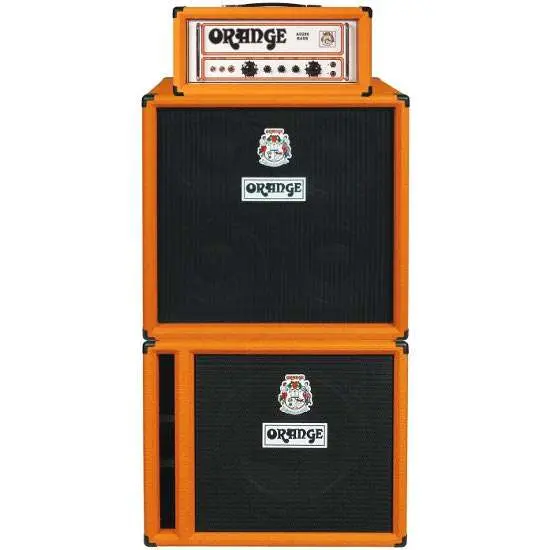
Speaker size and number of columns
For bass guitars, a 15 ”speaker is standard. It is worth paying attention to whether the loudspeaker (this also applies to the built-in loudspeaker in combach) is equipped with a tweeter. In most cases it is 1 ”and is located in the same column as the main speaker. It is definitely not necessary, but thanks to it, the bass guitar gets a more pronounced hill, crucial in breaking through the mix when playing with your fingers or a feather, and especially with the clang technique.
The larger the loudspeaker, the better it can handle low frequencies. That is why bassists most often choose loudspeakers with 15 “or even 2 x 15” or 4 x 15 “speakers. Sometimes combinations with a 10 ”speaker are also used. The 15 “speaker provides great bass, and the 10” is responsible for breaking through in the upper band (a similar role is played by tweeters built into speakers with a 15 “speaker). Sometimes the bass players even decide to go even 2 x 10 “or 4 x 10” to emphasize the breakthrough in the upper band. The bass coming out of there will be much harder and more focused, which may be desirable in many cases.
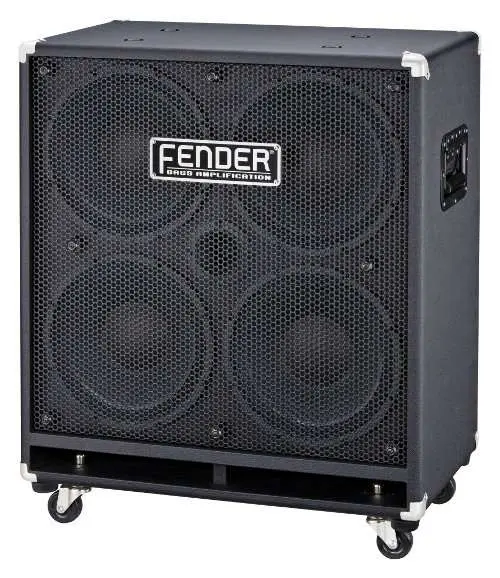
There are certain rules to keep in mind when choosing columns. I will give you the safest methods. There are, of course, others, but let’s focus on those not at high risk. If you are unsure of anything, consult a professional. No kidding with electricity.
When it comes to power, we can choose a loudspeaker equal to the power of the amplifier. We can also choose a loudspeaker with a lower power than the amplifier, but then you should remember not to disassemble the amplifier too much, because you can damage the speakers. In addition, you can also choose a loudspeaker with a higher power than the amplifier. In this case, you should not overdo it with disassembling the amplifier, so as not to damage it, because it may happen that we will try to use the full potential of the speakers at all costs. If we use moderation, everything should be fine. One more note. For example, an amplifier with a power of 100 W, colloquially speaking, “delivers” 200 W to a 100 W speaker. each of them.
When it comes to impedance, it is a bit different. First you need to check if you have a parallel or serial connection. In most cases, it occurs parallel. So if we have a parallel connection to an amplifier, e.g. with an impedance of 8 ohms, we connect one 8-ohm speaker. If you decide to use 2 loudspeakers, you should use 2 16 – ohm loudspeakers for the same amplifier. However, if we have a series connection, we also connect one 8-ohm speaker to an amplifier with an impedance of 8 ohms, but this is where the similarities end. In the case of a series connection, two 2-ohm columns can be used for the same amplifier. Certain exceptions can be made, but a mistake can have serious consequences. If you are not 4% sure, follow these safe rules.
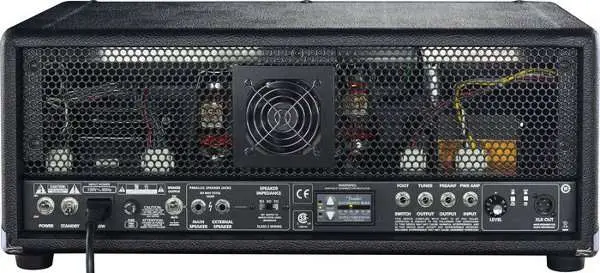
What to look for?
Bass amplifiers usually only have 1 channel which is clean, or 2 channels which are clean and distorted. If we choose an amplifier without a distortion channel, we will lose the possibility of obtaining a distorted sound only thanks to the amplifier. This is not a big problem. In that case, just purchase external distortion. You should also pay attention to the correction. Some amplifiers offer multi-band EQ for individual bands, but most only offer a “bass – mid – treble” EQ. Quite often, bass amplifiers are equipped with a limiter (a specially set compressor), which prevents the amplifier from unwanted distortion. In addition, you can find a classic compressor that equalizes the volume levels between gentle and aggressive playing. Sometimes modulation and spatial effects are built in, but these are merely additions and do not affect the basic sound. If you want to use external modulation and surround effects, check if the amplifier has a built-in FX loop. The modulation and spatial effects work better with the amp through a loop than between the bass and the amp. The wah – wah, distortion and compressor are always plugged between the amplifier and the instrument. It is very important to check if the amplifier offers mixer output. The bass is very often recorded linearly, and without such a output it is impossible. If someone needs a headphone output, it is also worth making sure that it is in the given amplifier.
Summation
It is worth connecting the bass to something valuable, because the role of the amplifier in creating the sound is huge. The issue of the “stove” should not be underestimated if you want to sound good.



